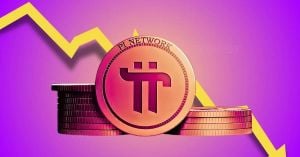A high-level Japanese group including former Prime Minister Yoshihide Suga is reportedly drawing up plans for Tesla to invest significantly in Nissan, following the collapse of the automaker's merger talks with Honda. According to the Financial Times, this proposed partnership emerges as part of Nissan's strategic effort to bolster its position amid fierce competition from industry leaders like Tesla and several Chinese manufacturers.
Nissan shares witnessed a notable spike of 11% on Friday after the news broke, indicating investor optimism about the potential collaboration. The proposal seeks to position Tesla as the largest backer within a consortium of investors, which could also see participation from Foxconn, the Taiwanese electronics giant known for its role as Apple's manufacturer.
Reports suggest the group believes Tesla is particularly interested in acquiring Nissan's manufacturing plants located across the United States. The proposal is seen as not just necessary but also timely, with Nissan recently suffering significant setbacks financially. Earlier this month, vehicle sales have slowed, and revenue from its increasingly ageing model portfolio is falling short.
The urgency of this push for Tesla's investment becomes clearer when examining the recent history of Nissan. The company has undergone significant turbulence, culminating last year when it announced the elimination of thousands of jobs as part of its restructuring plan amid staggering financial losses. Today's reality sees Nissan expecting more than $500 million in losses for the year, alongside maintaining its current junk credit status as rated by Moody's.
Moody's recently reflected on Nissan’s dire situation, stating, "Even if the company successfully executes its restructuring plan with cost reductions and new model releases, we do not expect free cash flow to turn positive until fiscal 2026 at the earliest." This paints a somber picture of Nissan's path to recovery and highlights its long-term need for exceptional investment.
The interest from Tesla, if it materializes, could signify more than just financial stabilization; it may also enable Nissan to modernize its operations and catch up technologically with competitors. Investments from foreign firms have been pivotal for major automotive players to maintain competitiveness, especially during the rapid shift to electric vehicles.
Suga’s leadership role as backing for the investment proposal brings weight to the initiative, emphasizing the influential connections and political support behind the request for Tesla's investment. Hiro Mizuno, a former Tesla board member, is also reportedly leading the charge to establish this relationship, indicating strong insider backing.
Nissan's long-considered merger with Honda was projected to create synergies and strengthen the Japanese auto sector as it navigates the transition to electric mobility. Unfortunately, these talks disintegrated when Honda suggested making Nissan its subsidiary rather than forming the much-anticipated holding company. The end of those discussions has left Nissan seeking new paths to recover profitability.
Despite the initial enthusiasm around these developments, skepticism persists within the industry. Analysts have underscored the challenges associated with integrating Tesla's innovative operational models with Nissan's existing frameworks. Doubts linger over whether such partnerships are sustainable or simply reactive maneuvers aimed at immediate relief.
Elon Musk himself has commented on the prospect of investing, indicating cautious hesitation. Musk tweeted somewhat dismissively about the idea, emphasizing, "The Tesla factory IS the product. The Cybercab production line is like nothing else in the automotive industry.” His comments reflect Tesla’s adherence to maintaining its own identity and innovations without becoming reliant on external support.
Nevertheless, for Nissan, the opportunity to align with Tesla may signal the necessity of adopting more fearless strategies, possibly involving substantial restructurings within the vehicle production space to adapt to forthcoming trends. The scenario points to larger trends within the auto industry where traditional manufacturers face immense pressure to evolve or risk obsolescence amid changing consumer demands.
Analysts assert this potential investment could yield not only financial leverage but also serve as leverage against competitors sprouting from all corners of the globe, especially from the highly ambitious Chinese car manufacturers aiming for market dominance. With companies like Huawei, Xiaomi, and Alibaba also eyeing entry points, Nissan must position itself proactively.
Understanding these dynamics helps clarify the stakes involved; Nissan’s future might hinge on whether enough backing can facilitate its transition to becoming competitive once more. Should this potential deal navigate through the necessary financial and strategic hurdles, it could redefine the company’s standing within the wider automotive sector. Even with cautious skepticism, the allure of strategic partnerships could usher newer horizons for automotive innovation and growth.
Overall, as talks for Tesla's investments gain traction, eyes remain firmly fixed on both companies' future trajectories. Suga’s involvement provides optimism, but the path remains complicated, urging stakeholders to remain vigilant as they weigh the possibilities.



